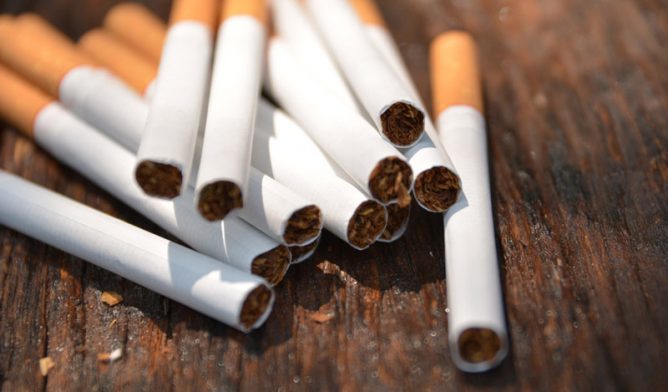The federal government recently unveiled new fiscal policy measures (FPM) outlining the rates of taxes and excise duties for the current year.
The new FPMs, which consist of supplementary protection measures (SPM), revised excise duty rates, and green taxes; were recently approved by President Muhammadu Buhari.
According to a recent circular signed by Zainab Ahmed, minister of finance, budget and national planning, the 2023 FPMs supersede the 2022 FPMs and will be published in the official federal government gazette.
Already, stakeholders are having a grouse with the policy.
Advertisement
For instance, Taiwo Oyedele, Africa tax leader at PricewaterhouseCoopers (PWC), highlighted key issues that should be addressed in the recently introduced fiscal policy measures.
He said “there is no information to suggest that a proper impact assessment was carried out to determine the impact of the new taxes on affected stakeholders across the value chain”.
The tax expert also censured the government for its consistent inconsistency in its policies.
Advertisement
TheCable highlights some of the new policy measures.
SUPPLEMENTARY PROTECTION MEASURES
The SPMs relate to the implementation of the Economic Community of West African States (ECOWAS) Common External Tariff (CET) 2022-2026, which is the application of the same customs duties and import quotas by member states.
They (the SPMs) include an import adjustment tax (IAT) list with additional taxes (levy) on 189 tariff lines of the extant ECOWAS CET; an import prohibition list (trade), applicable only to certain goods originating from non-ECOWAS member states; and a national list consisting of items with reduced import duty rates.
Advertisement
According to the circular, the approved SPMs took effect on May 1, 2023.
However, a grace period of 90 days is applicable for importers who opened “form M” before the effective date (May 1) and those who must have entered into irrevocable trade agreements before the circular came into effect.
Some of the items included under the revised IAT list are rice, electric generating sets and rotary converters, motor vehicles, smartphones, wheat, and glazed ceramics.
The federal government tariff on new passenger motor vehicles — four-wheel drives with cylinder capacity greater than 1500 cubic capacity(cc) — remains unchanged from the 2022 FPM at a rate of 40 percent.
Advertisement
However, it exceeds the recommended rate of 5 percent of the ECOWAS CET for the years 2022-2026.
The tariff on passenger motor vehicles (including fully built units), four-wheel drive motor vehicles, and station wagons also remained at 40 percent, but still higher than the ECOWAS CET recommended 5 percent.
Advertisement
On containers for compressed or liquefied gas, the tariff remained unchanged from the 2022 FPM at 60 percent. This is also higher than the recommended 40 percent of the 2022-2026 ECOWAS CET.
A tax of 70 percent was placed on wheat or meslin flour (unchanged from 2022) as opposed to the ECOWAS CET’s recommended rate of 50 percent.
Advertisement
REVISED EXCISE DUTY RATES
The revised excise duty rates are additional taxes levied on alcoholic beverages, cigarettes, and tobacco products. In accordance with the current implementation period, the new rates will take effect on June 1, 2023, and they will be revised upward by June 1, 2024.
Advertisement
Excise duty is a form of tax imposed on the production, licensing, and sale of goods.
In 2022, Ahmed announced that the federal government introduced an excise duty of N10/litre on all non-alcoholic, carbonated, and sweetened beverages.
In the latest the circular, the excise duty rate was upheld in the 2023 FPM.
Similarly, an excise duty of N10/litre was imposed on aerated water.
Meanwhile, beer, stout, and alcoholic wines will be subject to a N75/litre excise duty, while a N150/litre excise duty will be imposed on whisky, brandy, and vodka.
Tobacco, including cigarettes, will attract an excise duty of N8.20 per stick.
A N1,500 per kilogram or N3,500 per litre excise duty will also be applied to any additional products that contain tobacco substitutes in any proportion.
REINTRODUCTION OF 5% TELECOMS EXCISE DUTY
In July last year, the minister of finance had said the government would begin the implementation of the 5 percent inclusive excise duty on telecommunications services, which was introduced in the 2020 finance act.
Isa Pantami, minister of communications and digital economy, faulted the timing and process of implementation, saying he was not informed.
Ahmed’s statement also drew widespread criticism from Nigerians, including telecom operators.
But she insisted that the federal government would go on with the implementation of the 5 percent excise duty on telecommunications services.
Ahmed noted had that all relevant agencies, including the communications ministry, were informed of the implementation of the tax as approved by Buhari.
In September 2022, Pantami announced that the excise duty on telecommunications services had been suspended.
Two months ago, he reiterated that Buhari had approved the exemption of the telecommunications sector from the proposed 5 percent excise duty.
However, the circular stated that the excise duty rate on telecommunication services “remains as approved by the president and published in the official gazette no. 88, Vol. 109 of 11th May, 2022”.
The surcharge applies to mobile telephone services (GSM), fixed telephone, and internet services — postpaid and prepaid — at the rate of 5 percent.
GREEN TAX
Meanwhile, as part of Nigeria’s commitment to climate change adaptation and mitigation to environmental degradation, the federal government introduced a green tax made up of excise duty on single-use plastics (SUPs), including plastic containers, films, and bags, at a rate of 10 percent.
Also, an IAT levy of 2 percent on motor vehicles of 2,000cc to 3,999cc was introduced, while 4,000 cc and above will be taxed at 4 percent.
This excludes vehicles below 2000cc, mass transit buses, electric vehicles, and locally manufactured vehicles.
The excise duty on SUPs will take effect on June 1, 2023.






